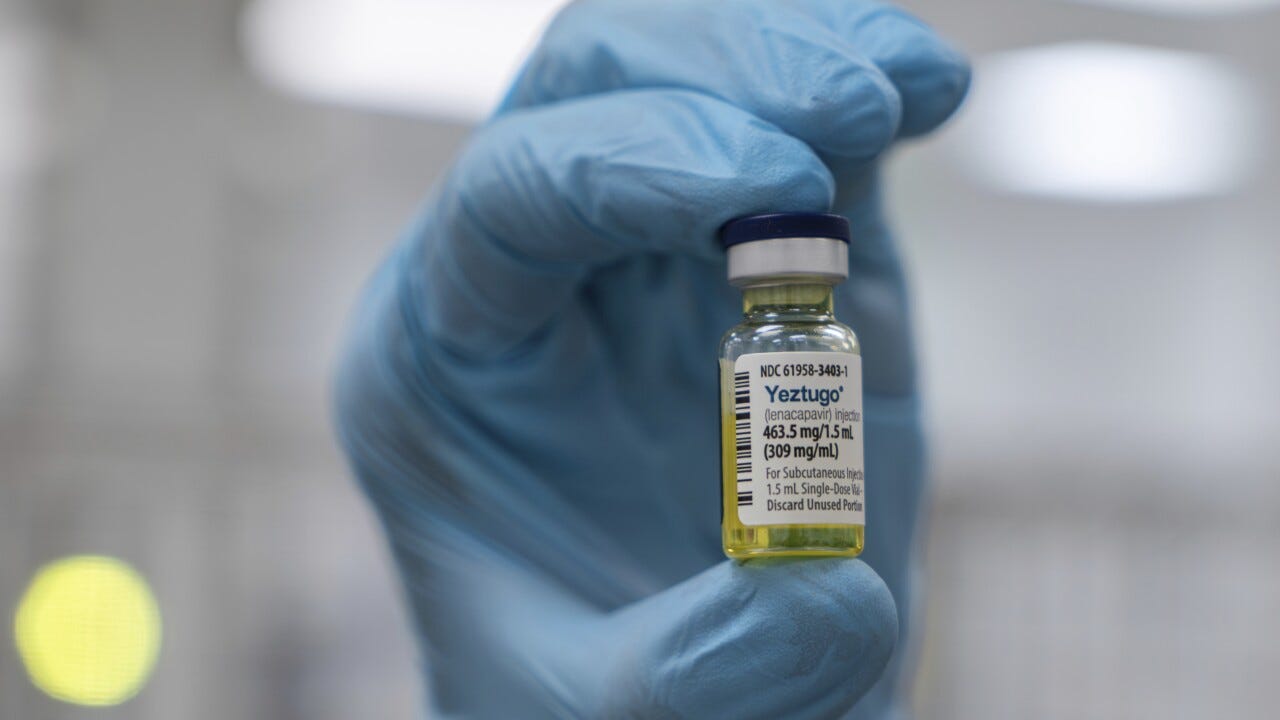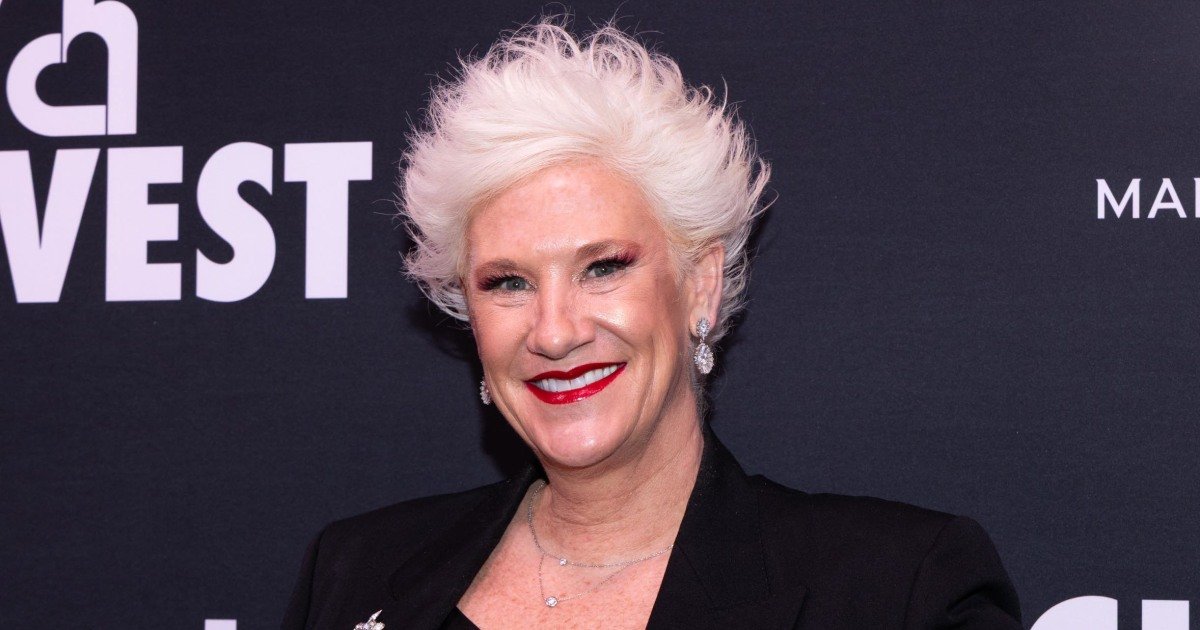Now Reading: FDA approves new twice-yearly HIV shot in bid to end epidemic
-
01
FDA approves new twice-yearly HIV shot in bid to end epidemic
FDA approves new twice-yearly HIV shot in bid to end epidemic


FDA approves twice-a-year shot to prevent HIV
The U.S. Food and Drug Administration has approved the world’s only twice-a-year shot to prevent HIV. (Scripps News)
Scripps News
The Food and Drug Administration has approved Gilead’s HIV prevention drug lenacapavir, a twice-a-year injectable medication that clinical trials show prevents new infections.
The drug will be marketed under the name Yeztugo and sell for an annual price of $28,218, or $14,109 per injection. Gilead said the price is comparable to existing HIV prevention drugs and the company will work with insurers to obtain broad coverage of the drug.
Advocates say the long-acting medication is promising because it’s more convenient than existing HIV prevention drugs that must be taken daily.
Giving people the option of a twice-a-year injectable is “a game changer, not only for the United States, but around the world,” said Carl Schmid, executive director of the HIV+Hepatitis Policy Institute.
Gilead officials lauded the FDA’s approval of lenacapavir, which has been studied and developed over nearly two decades.
“We now have a very real opportunity to end the HIV epidemic,” said Daniel O’Day, chairman and CEO of Gilead Sciences. “Lenacapavir has shown to be remarkably effective and only needs to be given twice a year, which represents a whole new way of preventing HIV.”
How does lenacapavir compare to other HIV prevention drugs?
Pre-exposure prophylaxis, or PrEP, medications are sold as a daily pill under brand names Truvada and Descovy, as well as generic versions. Another injectable medication, Apretude, is taken every two months after two initial shots taken one month apart.
The overwhelming majority of PrEP users take daily versions, but “it’s hard to take a pill every day … when it’s for prevention,” said Johanna Mercier, Gilead’s chief commercial officer. “So we see adherence levels as low as 50% to 55%,” which does not provide adequate protection for at-risk populations.
People are more likely to stay on the medication if they need to take the medication only twice a year rather than daily oral doses, Mercier said.
Dr. Paul Sax, clinical director of the division of infectious diseases at Brigham and Women’s Hospital, said the daily pills and two-month PrEP versions work well for people who consistently take them.
Sax said the twice-a-year shot might appeal to those who aren’t willing or able to take a daily pill.
“The key is getting people to take (PrEP) and having them reliably do so,” Sax said.
What did the lenacapavir studies show?
In one study of women and adolescent girls in sub-Saharan Africa and Uganda, lenacapavir was 100% effective at preventing HIV infections.
A second study reported the twice-a-year injections lowered the HIV infection rate by 96% in groups of cisgender men and gender-diverse people in the U.S., Argentina, Brazil, Mexico, Peru, South Africa and Thailand.
Schmid said the studies show people are much more likely to take the medication as recommended when it’s dosed twice a year compared to daily pills.
“This makes it so much easier and better for adherence and also for people who have other challenges in their life like mental health issues, work or stigma, ” Schmid said.
Will insurers cover lenacapavir’s cost?
Gilead said the company will work with insurers, health care systems and other payers “with the goal of ensuring broad insurance coverage for Yeztugo.”
Out-of-pocket costs for uninsured patients who take Truvada and Descovy, which Gilead also markets, can range from $22,000 to $30,000 a year, according to an analysis by GoodRx, which provides pharmacy drug pricing information.
The U.S. Preventive Services Task Force, an independent advisory panel of national experts that evaluates medical treatments and services, assigned an “A” rating for PrEP medications when prescribed to adolescents and adults at increased risk of HIV.
Under the Affordable Care Act, that means insurers must cover the full costs of the medication as preventive care.
Still, activists say insurers have charged copays or other cost sharing from required lab tests and medical visits. People must test negative for HIV before starting the medication. While on the treatments, they must take routine tests for HIV, other sexually transmitted infections and kidney health.
Sax said insurance coverage of lenacapavir will be key to people getting the drug.
Some insurance companies are more likely to cover generic versions of the daily PrEP pills, and those generics “can be quite inexpensive” compared with the brand versions, Sax said.
More than 1 million new HIV cases a year
Every year, more than 1 million people globally become newly infected with HIV, according to the World Health Organization.
About 10 million worldwide need to take PrEP to meet global HIV prevention goals, WHO said. About 2.5 million take PrEP, WHO said.
More than 39,000 U.S. residents were diagnosed with HIV in 2023, according to the Centers for Disease Control and Prevention. More than 4,700 deaths in 2023 were attributed to HIV, the virus that weakens the immune system and causes AIDS, the CDC said.
A June study estimated as many as 2.2 million Americans could benefit from HIV prevention medications.
Men account for nearly 80% of new cases, mostly involving gay or bisexual men, the CDC said.
Research shows White patients are far more likely to take PrEP than their Black or Latino counterparts, even though White patients are less likely to get infected with HIV.
Geographically, the South accounts for more than half of new HIV cases.
“We hope to reduce those numbers and potentially get to a day when zero infections are reported,” Mercier said.



















































